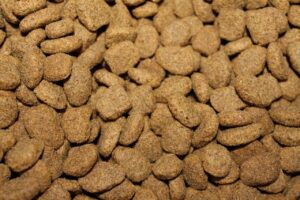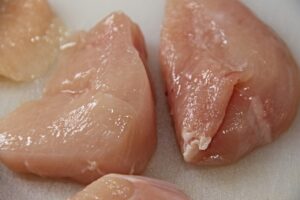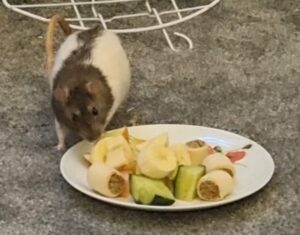As an Amazon Associate, Bakersfieldrats.com earn from qualifying purchases.
Feeding Rats
Feeding rats a balanced and nutritious diet is essential to their overall health and well-being. Rats are omnivorous animals, meaning they need a balanced and nutritious diet that is essential to their overall health and well-being. Rats are omnivorous animals, meaning they can consume both plant and animal-based foods. Providing a varied and well-rounded diet ensures that rats receive the necessary nutrients for optimal growth, development, and maintenance of their body functions.
Commercial Rat Food:
A good base for a rat’s diet is high-quality commercial rat food. These pellet foods are specifically formulated to meet the nutritional needs of rats and provide a balanced mix of protein, carbohydrates, fats, vitamins, and minerals. Look for rat-specific formulas at pet stores or consult with a veterinarian for recommendations.

Fresh Water
Rats require a constant supply of clean, fresh water. Make sure to provide a water bottle with a sipper tube, which helps prevent contamination and spillage. Regularly check and refill the water bottle to ensure it remains filled.
Protein Sources:
Rats need a good source of protein in their diet. Feeding rats lean meats like cooked chicken, turkey, or fish in small amounts. Hard-boiled eggs are also a good protein source. Additionally, you can provide small amounts of cooked legumes, such as lentils or chickpeas, as vegetarian protein alternatives.
Fresh Fruits and Vegetables:
Rats benefit from consuming a variety of fresh fruits and vegetables. Offer them small portions of items like apples, bananas, grapes, carrots, peas, broccoli, and leafy greens. These provide essential vitamins, minerals, and dietary fibre. Avoid feeding them citrus fruits and onions, as these can be harmful to rats.


Whole Grains:
Introduce whole grains to your rat’s diet as a source of carbohydrates and fibre. Feeding Rats options like cooked brown rice, whole wheat pasta, and oats in moderation. Avoid sugary cereals or highly processed grains.
Treats:
Rats enjoy treats, but they should be given sparingly. You can provide small pieces of healthy treats like unsalted nuts (e.g., almonds,, seeds (e.g., sunflower, pumpkin), or small amounts of cheese or yogurt. Feeding rats should not exceed 10% of the rat’s total diet to prevent nutritional imbalances.
Avoid Toxic Foods:
Some foods are toxic to rats and should be strictly avoided. These include chocolate, caffeine, alcohol, sugary or salty snacks, raw beans, green potatoes, and foods high in fat or spices

Liquorice
Glycyrrhizin, a natural sweetener found in liquorice root, can cause liquorice poisoning or toxicity in rats. This condition can lead to elevated blood pressure, electrolyte imbalances, muscle weakness, and potentially cardiac issues. In severe cases, liquorice toxicity can even be fatal for rats.
It’s important to note that feeding rats an exact dietary requirement can vary based on their age, size, activity level, and overall health. Consulting with a veterinarian experienced in small animal care can provide tailored advice based on your rat’s specific needs.
Remember to observe your rats’ eating habits and adjust their diet accordingly. Feeding Rats a well-balanced and varied diet, along with proper hygiene and care, will help ensure your rats remain healthy and happy
No Posts Found!
As an Amazon Associate, Bakersfieldrats.com earn from qualifying purchases.
